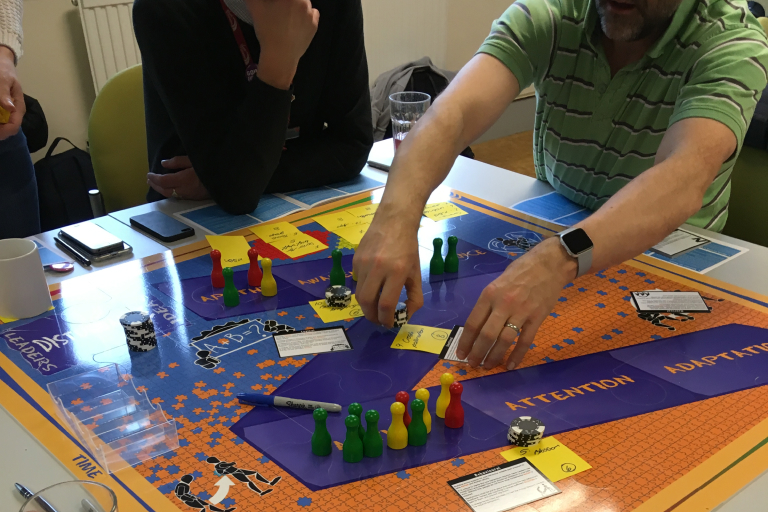Interview with Steve Read of Helix Consultancy
We’ve met Steve several years ago, we’ve worked together on a couple of learning projects, and for me, he was always an example of positive determination and innovation in the field of experiential learning.
A few days ago I asked him “What about an interview with Steve Read?” and he was kind enough to answer a few questions while sharing with us his thoughts on live training and how others can approach the transition from in-class to remote training delivery.

Who is Steve Read?
Describe yourself in a few words.
Steve is Rachel’s husband, dad to two lovely children, a good friend to a few really wonderful people, a colleague of some very talented people and MD of the Helix Consultancy.
Tell us about Helix
Helix is a leadership training company with an ethos of challenging people, teams and organisations whilst developing those people, teams and organisations. Our motto is that ‘only dead fish float with the current; live fish swim against it. Not a literal motto – more of a metaphor… We specialise in leadership development, and in particular Action Centred Leadership.
Please describe your training portfolio
We work with organisations large and small, from international multi-billion $ organisations to a small-town car maintenance garage in a town in the UK. We work or have worked with scientific research organisations, farming and food production operations, UK government departments, insurance companies, building societies, pension providers… the list goes on
What are your clients looking for?
Our direct, no-frills approach focuses on building peoples’ skills, capabilities and confidence. We balance the needs of people with the demands of the business.
What’s your approach to keeping delegates engaged?
Fun is designed into our programmes. We use a lot of activities to facilitate learning. We encourage people to open up, to be really honest, to talk about things that matter, as they really are. Whilst this can be challenging at times, for the most part, it results in really rewarding outcomes. From this stems engagement.
What do you consider to be the “secret” of successful training delivery?
Well-trained and experienced facilitators who understand the learning process; getting inside the hearts and minds of our clients so that we really understand what is going on; well-designed development activity.
What was the impact of the pandemic on your business?
Initially, a cliff edge over which we fell. Then, once we had taken online learning off the ‘too-difficult-to-do’ shelf, we realised that it wasn’t too difficult to do. We got stuck in learning how to use the technology. It has had an impact on our revenue and profitability – we split every one day of face-to-face delivery over two half-days when online (it’s tiring for everyone) , and we need a ‘producer’ to look after the technology on more complex sessions.
People learn in different ways and at varying speeds. What’s your perspective on remote training delivery?
Mixed. Some of our training is well suited to online delivery. For other parts, we are looking forward to getting back into the training room. People are genuinely getting tired of communicating via video platforms, and as a result, we timetable more breaks and make sure we break things up by using online activities, quizzes and polls…
What are the key challenges with this approach?
Keeping on top of the learning process – watching where people are at, judging engagement, ensuring the quieter people are getting a say. Internet speed and connectivity cause constant issues. Knowing how to use multiple platforms on multiple screens concurrently.
What technologies/software do you prefer for live training? Why?
Zoom, because it offers a simple platform with the (pretty much) right functionality (a few tweaks required if anyone from Zoom is reading this). Colltrain – because it offers a good platform for us when using the Action Centred Leadership framework. Colltrain is easy to use alongside Zoom. PowerPoint – because it is straightforward, easy to use and reliable.
What about your experience with Colltrain? What’s the key benefit of using it?
It is the only platform that is designed for online training for Action Centred Leadership. It is affordable. Great technical support and ongoing refinements and improvements. Training participants enjoy and appreciate the activities.
What’s your advice/recommendation for other trainers that struggle to make the transition from in-class to remote delivery?
Get on with it! It is easier than you think. Get some training on the platforms if needed, but the best way is to practice – we used friends and family as guinea pigs. Re-design your programmes to fit online delivery.
Work with your clients so that they understand what you are trying to do. Invest – in the right licences for software, in multiple screens for ease of operation, in good quality HD webcams, in good speakers, in comfy chairs or standing desks…






